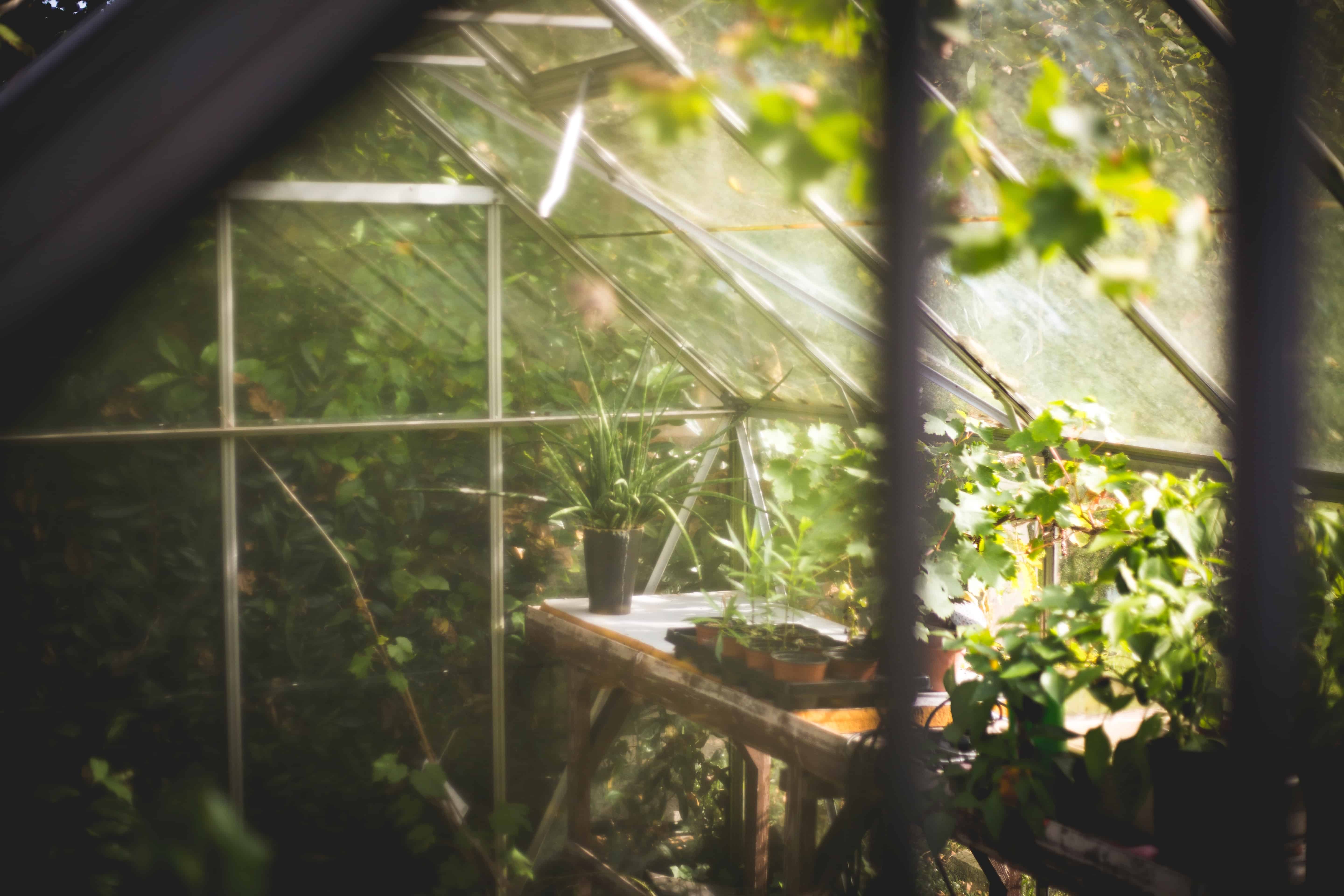For the past two years, I have often found myself thinking of a greenhouse. It’s a visual that drifts in and out; there’s no telling when it will appear. Sometimes it will float in while I’m sipping my morning coffee, or when I’m walking my son to school, or waiting in line at the bank. I’ve come to learn that this visual is something I invented to self-soothe, and gently remind myself of what I can and cannot handle.
The greenhouse is a metaphor for my life. The entire ecosystem is fragile and protected under a sheet of glass. On days when I’m feeling overwhelmed, I stand inside my greenhouse, breathe in the moist air, and listen to water trickle from the hose. It is warm, and the smell of earth grounds me. Sometimes, I’ll stick my hand deep into the dirt, simply to grab hold and feel it sink into my fingernails.
At times, I wander inside the greenhouse, but more often than not, I’m looking at it from a distance. The glass panels have aged over time, and the white paint is chipping, like the lines that map an old woman’s hands. I don’t feel the need to add a new coat; I like the way it looks.
When I am feeling maxed out, the greenhouse tells me to slow down, to look carefully. Pause. Breathe.
“Maxed out” is not a term I used before having a child, but it is one that I refer to regularly now. For me, it means that there is zero space in my brain, zero energy in my body to do anything more. Or when asked to do another thing, my default response is, “I wish I could, but I’m at capacity.” Of course, as humans, we were always built to be able to handle more, which is tested when we’re handed difficult life challenges or experience tragedy, but during those chapters, while we may be able to overcome one obstacle, something else will likely fade, or fall apart. DO IT ALL, they chant. But they lie.
Becoming a mother has taught me what my limitations are, because when life constantly demands more than you can give it, you’re forced to prioritize and decide what fits. And you learn how to let go of what doesn’t fit. It’s a lifelong process of figuring out how to juggle all the buckets into a rhythm that you can keep up with.
My work list has always been a bit endless; there is always more to do, more ways to improve. When I had my son, my time and energy was immediately and dramatically dispersed. I learned quickly what was in fact manageable in a day or in a week; my capacity tested over and over. I adapted, became more efficient, and learned to separate the needs from the wants to find stability. Frankly, more often than not, life feels barely manageable. And I don’t mean that to sound negative; I’m just being realistic. We can only do so much, so we must choose wisely.
Like everyone, I’m trying to balance many roles and responsibilities, both in work and in my personal relationships. Since running a business is its own full-time job, as is being a mother, it’s impossible to give both 100% all of the time. And then there are friends, family, neighbours, my marriage: like the plants in the greenhouse, these all require care. Once in a while, I also remember that I too am on the list: my health, my sobriety, my physical and mental well-being. (Self-care has always been the biggest struggle.)
Most days, my ecosystem as a whole is healthy, but every day, while one plant is lush, another one is limp. Life is about constantly needing to water and care for each plant, and reminding myself to sometimes pause to take a sip from the hose.
When people ask me if I will have another child, or grow my business exponentially, I sometimes tell them about my imaginary greenhouse. “Everything is alive and well, but if I add one more thing, the weight of it will cause the glass to break, or the roof will cave in.” If I were to add anything to my life right now, something else would not get the nutrients it deserves: my partner, my business, myself.
When I explained this to someone recently, they looked at me with a puzzled face and said, “That sounds sad.” It’s not. Not at all. The greenhouse is beautiful the way it is. Sometimes in order to be our strongest selves, we have to acknowledge our fragilities.



 Follow Us On Instagram
Follow Us On Instagram
